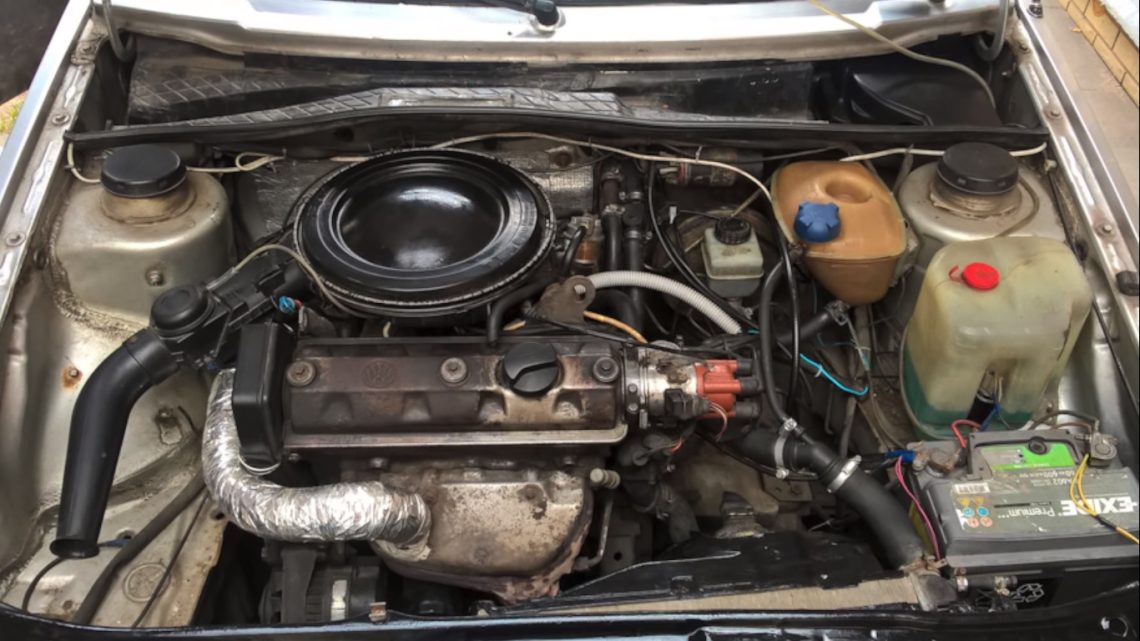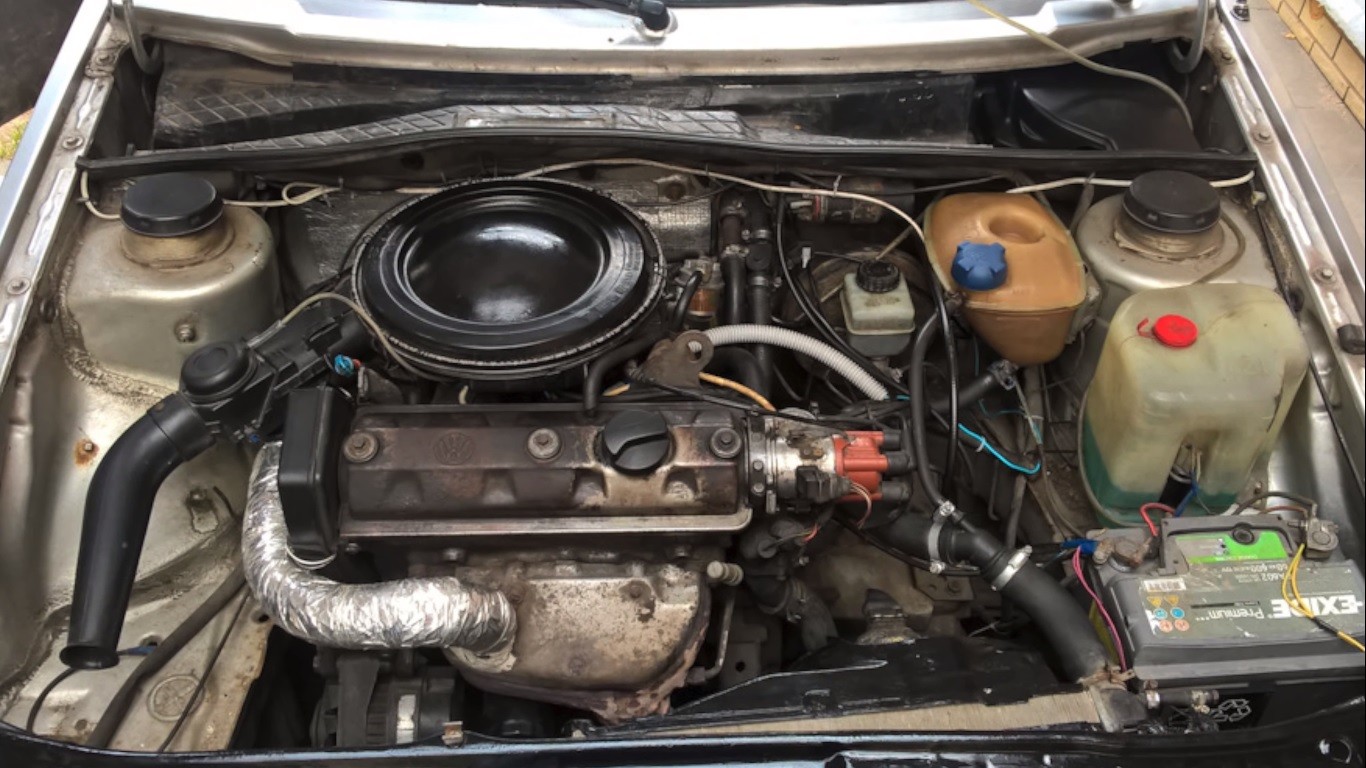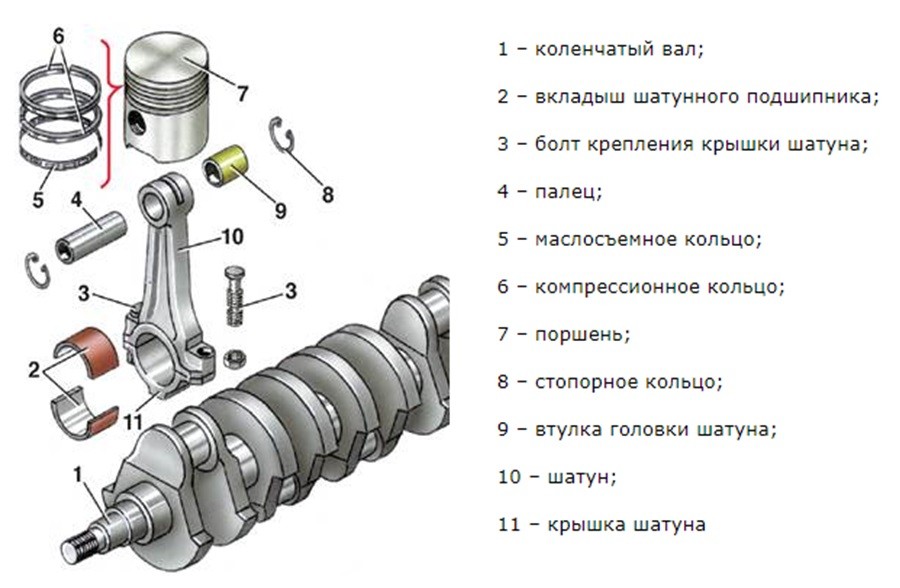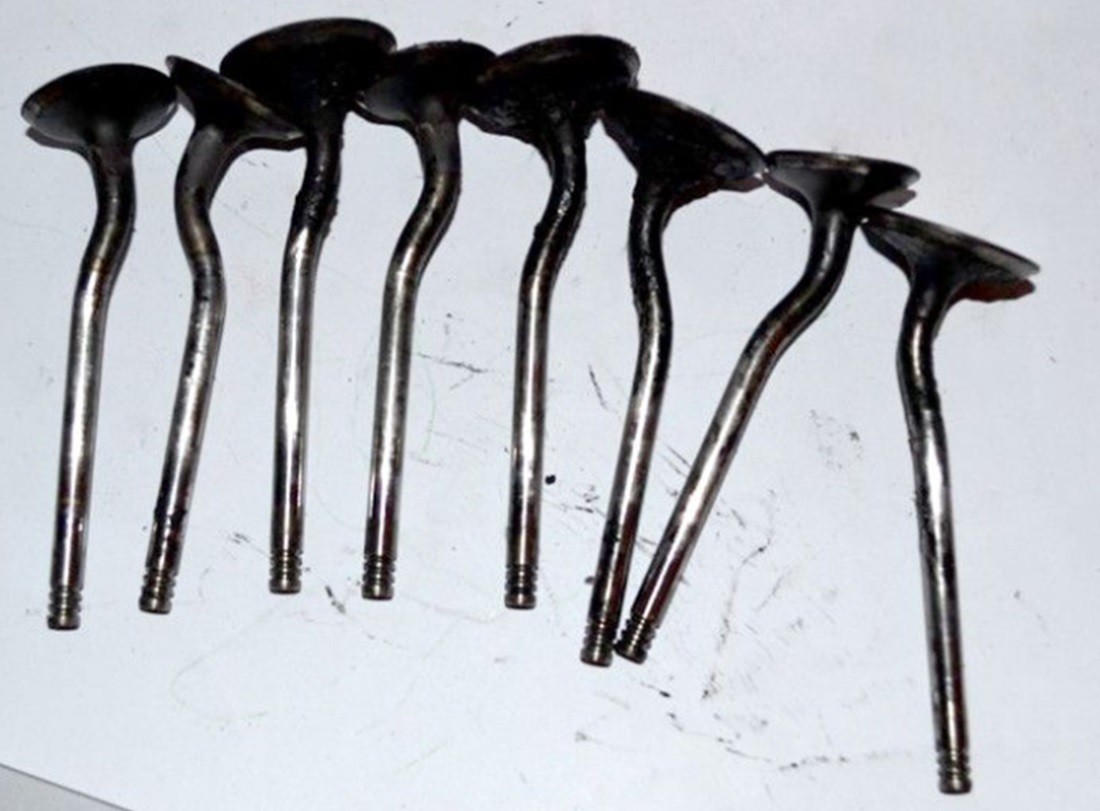
Volkswagen MH engine
Content
One of the popular engines of the EA111-1,3 line of the VAG auto concern was widely used on well-known models of the Volkswagen concern.
Description
The release was carried out at Volkswagen plants from 1983 to 1994. It was intended to equip the cars of the concern.
The Volkswagen MH engine is a typical 1,3-liter gasoline in-line four-cylinder aspirated engine with a capacity of 54 hp. with and a torque of 95 Nm.

Installed on Volkswagen cars:
Cast iron cylinder block. The block head is aluminum, with one camshaft, eight valves with hydraulic compensators.
The pistons are aluminum, in the most loaded places they have steel inserts. They have three rings, two upper compression, lower oil scraper.
Connecting rods are steel, forged, I-section.
The crankshaft is also steel, forged. Mounted on five pillars.

Timing belt drive. Belt resource according to the manufacturer - 100 thousand km.
2E3 fuel supply system, emulsion-type carburetor, two-chamber - Pierburg 2E3, with sequential throttle opening.
The oil pump of the lubrication system is installed in the front of the cylinder block, has its own chain drive. The drive is adjusted by moving the oil pump.
Contact ignition system. In later releases, TSZ-H (transistor, with Hall sensor) is used. High voltage coil one for four cylinders. Original spark plugs for internal combustion engines produced before 07.1987 - W7 DTC (Bosch), from 08.1987 - W7 DCO (Bosch).
Technical specifications
| Manufacturer | Volkswagen carmaker |
| Release year | 1983 |
| Volume, cm³ | 1272 |
| Power, hp from | 54 |
| Power index, l. s/1 liter volume | 43 |
| Torque, Nm | 95 |
| Compression ratio | 9.5 |
| Cylinder block | cast iron |
| Number of cylinders | 4 |
| Cylinder head | aluminum |
| Fuel injection order | 1-3-4-2 |
| Cylinder diameter, mm | 75 |
| The piston stroke, mm | 72 |
| Timing drive | belt |
| Number of valves per cylinder | 2 (SOHC) |
| Turbocharging | no |
| Hydraulic compensators | Yes |
| Camshaft adjuster | no |
| Lubrication system capacity, l | 3.5 |
| Applied oil | 5W-40 (VW 500 00|VW 501 01|VW 502 00 ) |
| Fuel system | Pierburg 2E3 carburetor |
| Fuel | gasoline AI-92 |
| Environmental standards | Euro 0 |
| Resource, outside. km | 250 |
| Location | transverse |
| Tuning (potential), l. With | 130* |
* forcing the engine significantly reduces its resource
Reliability, weaknesses, maintainability
Reliability
It is customary to judge the reliability of an engine by its resource and safety margin. The Volkswagen MH ICE, with adequate maintenance and care, is several times higher than the declared mileage. Many car owners write about this in their reviews about the engine.
For example, Culicov from Chisinau says: “... well, if we consider the motor itself separately, then in principle it is not killed. Personal 12 years of ownership experience! Kiv from Moscow expressed his opinion about the high reliability of the unit: “... it starts with half a turn in any weather, it keeps very confidently on the road, the dynamics are excellent. Now the mileage is 395 thousand).
ICE MH has a large margin of safety. Chip-tuning the engine with a turbocharger gives a noticeable increase in power. But at the same time, one should not forget about the other side of the coin. First of all, this is a decrease in resource and an increasing load on the components and parts of the motor. From the point of view of financial investments, forcing the motor will also become quite costly.
Thus, the general opinion of car owners about the engine can be expressed in one word - reliable.
But despite the simple design of the unit, it is not without drawbacks.
Weak spots
The carburetor causes the most problems. In his work, various failures often occur. Basically, they are associated with low quality gasoline. Flushing and adjusting the assembly contributes to its trouble-free operation.
A lot of trouble delivers the ignition system. Frequent failures in its work give car owners a lot of unnecessary trouble.
If the timing belt breaks, bending of the valves is inevitable.

Regular monitoring of the condition of the belt will extend its life to the declared one.
With increased oil consumption, it is necessary to check the condition of the valve stem seals. In the history of motor production, a moment was marked when low-quality MSCs were installed.
Another unpleasant moment in the lubrication system is that in severe frosts, freezing of the crankcase ventilation is possible. This is noticeable when the process of squeezing oil through the oil dipstick occurs.
As you can see, there are weaknesses in the internal combustion engine, but they (with the exception of a broken timing belt) are not critical. With their timely detection and elimination of great harm to the motor, they will not bring.
Maintainability
The cast-iron cylinder block provides a complete overhaul of the internal combustion engine. The simplicity of the design of the mechanical part ensures high maintainability of the motor.
There are a number of messages from car owners about this. So, MEGAKolkhozneg from Vologda writes that: “... capital is not difficult ... the engine is obscenely simple ... I made both the head and the block myself for the first time in my life". There are a lot of similar reviews about the ease of repairing the unit on the Internet.
There are no big problems with finding spare parts. The only reminder is that high-quality restoration of the motor is possible only when using original parts.
Before repair, you need to consider the option of purchasing a contract engine. The price of such motors varies over a very wide range - from 5 to 30 thousand rubles.
By the way, as Vladimir from Tula writes about the repair: “... a good do-it-yourself capital will cost 20-30 thousand».
In general, the Volkswagen MH engine has proven to be a reliable and easy-to-maintain engine.

